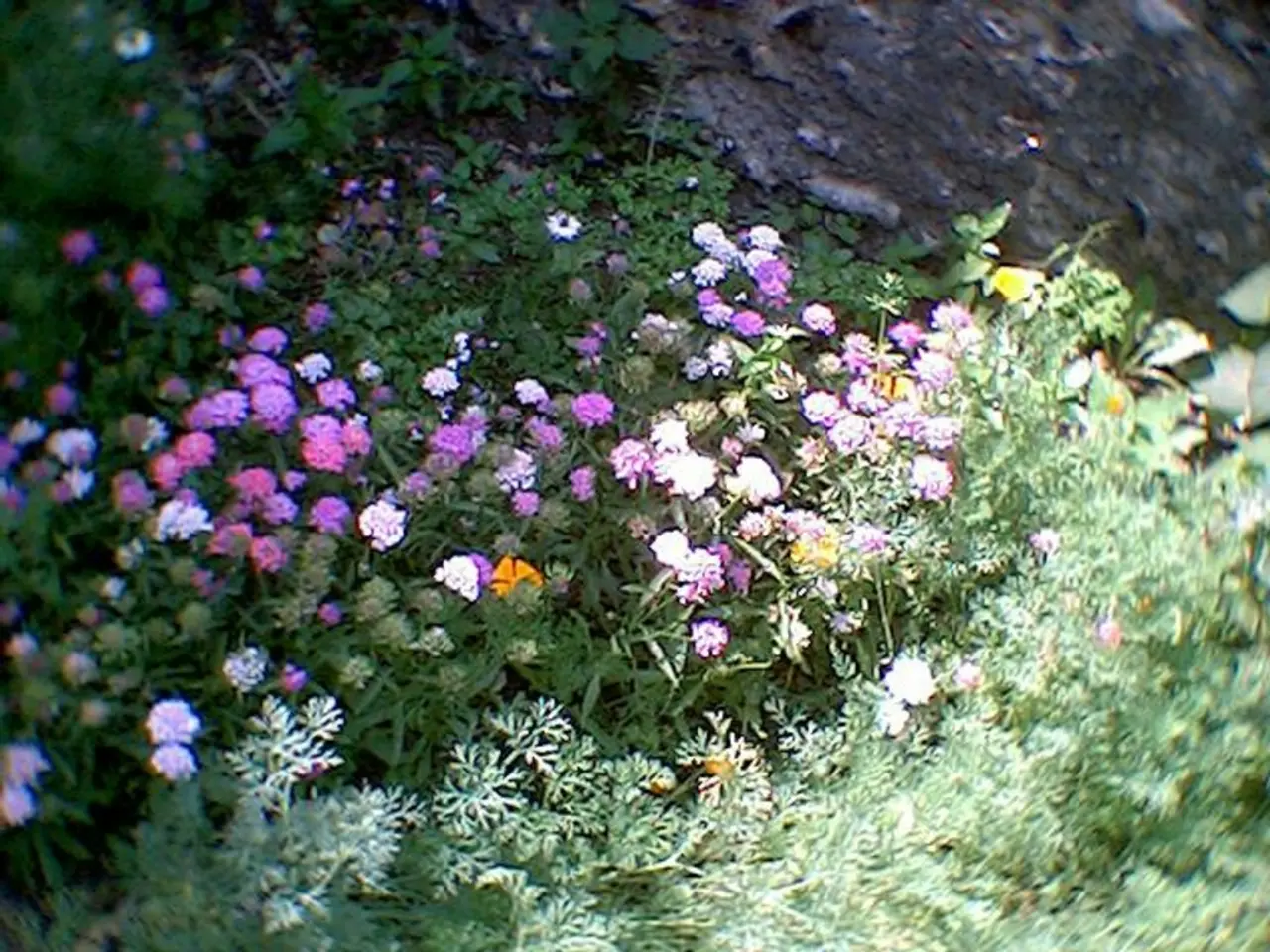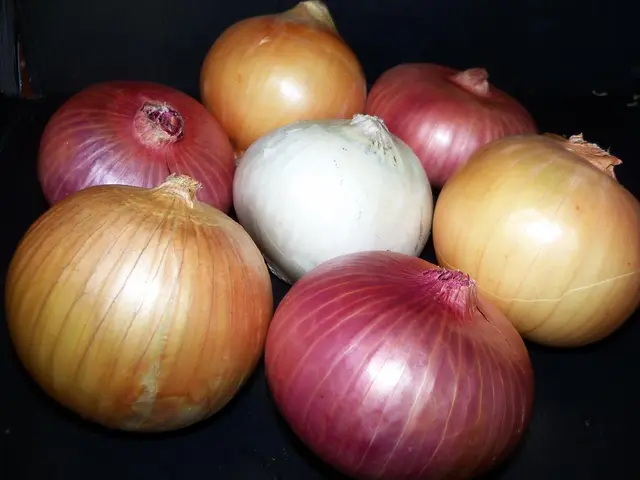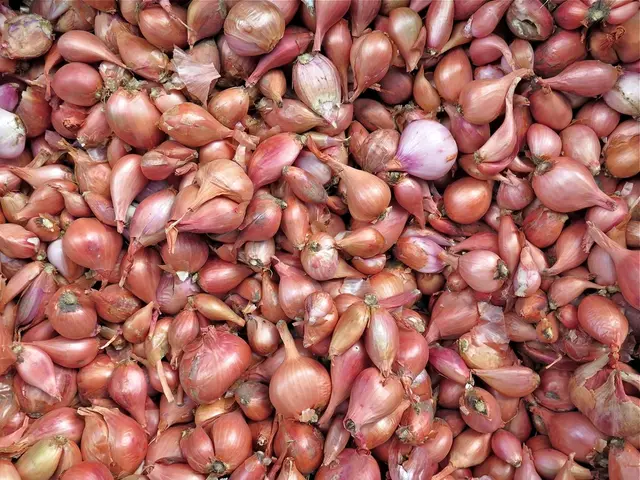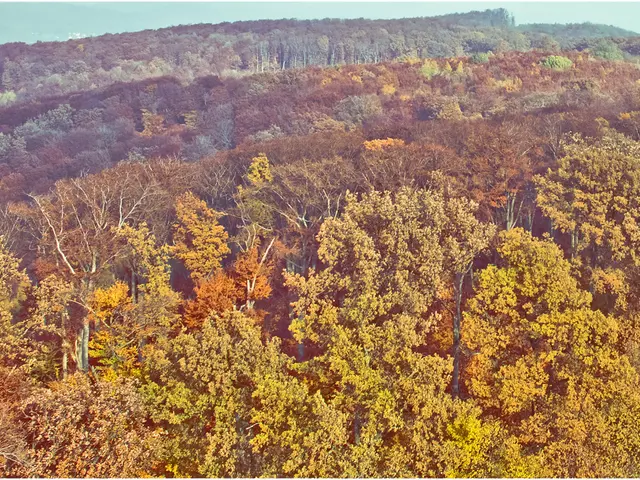Top 10 Perennials That Provide Continuous Blooms for Year-Round Charm in Kentucky Gardens
Sick of your Kentucky garden turning into a barren wasteland come winter? Fear not, my friend, for I've got the perfect list of perennials that'll thrive in Kentucky's climate like a pro!
From the unyielding coneflower – that old Kentuckian, Echinacea – to the majestic peony with its centuries-old roots in Traditional Chinese Medicine (TCM), these beauties will bring life and resilience to your outdoor oasis.
- Coneflowers (Echinacea)
- Native to good ol' Kentucky, these bad boys are a rockstar in gardens. They're hardy, survive cold winters, and bloom like mad in the summer! Plus, they've been used historically to shorten the duration of colds and the flu – perfect for those Kentucky winters!
- Peonies
- Peonies dig the cooler climes, making them a fitting addition to your Kentucky garden. Older varieties do better further south, while newer ones need a bit of winter chill. Full sun is a must, along with good air circulation and slightly moist, well-drained soil. If you're feeling adventurous, take a trip on down to the apothecary for some Traditional Chinese Medicine (TCM) made from peony roots – it's been known to block pain and swelling, prevent blood clotting, and act as an antioxidant!
- Black-eyed Susan
- This wildflower native to Kentucky can be found along roadsides and interstate medians in the summer. It's Suzy Homemaker-easy: give it a spot in full sun, some afternoon shade if you're in the hottest regions, and average soil that drains well. It'll reward you with bright, cheerful yellow blooms. And if you're ever in a bind, you can whip up a tea made from the roots to treat cold, dropsy, and worms in the little ones.
- Butterfly Bush
- Show off your green thumb with this large, shrubby perennial. It blooms like mad from summer into the fall and tolerates both full sun and partial shade. Just make sure to keep it consistently watered, and give it about an inch of water a week while it's actively growing. If winter temps don't dip too low, it might even freeze and rejuvenate in the spring! Fancy a tea made from the medicinal butterfly bush? It might help with eye complaints, including bloodshot eyes, eye secretions, and sensitivity to light.
- Daylilies
- Tough as nails – that's daylilies for ya! They thrive in a variety of soils, including clay, and are easy to grow in most garden sites. Full sun and well-drained soil are their top picks, but they'll tolerate semi-shade locations. An extract of the flowers can be used as a blood purifier, and the rhizome has shown antimicrobial activity and tuberculostatic properties.
- Iris
- Native to Kentucky, the crested iris is a reliable perennial that does well in partial shade with well-drained soil that has been amended with sand or leaf mold. Highly fertile soils tend to promote more vegetative growth than flowers. Irises bloom best in full sun, and like most bulbs, they prefer well-drained soil; otherwise, they might rot. Use the iris as a powerful liver stimulant, or for relief from secretive glands of the intestines, stimulating the flow of saliva, and healing the lymphatic system.
- Daffodils
- A classic in Kentucky gardens, daffodils need a lot of water while growing – give them about an inch a week through manual watering or rainfall. Plant 'em in a sunny spot with at least 6 hours of bright sun each day, and watch 'em bloom their helmets off! Despite serious safety concerns, people take daffodil for whooping cough, colds, asthma, and to cause vomiting.
- Russian Sage
- Russian sage is a reliable and outstanding addition to Kentucky gardens, thanks to its gray-white foliage and long period of bloom. Grow it in full sun gardens because it loves heat and is drought tolerant. It prefers dry to average moisture levels with very well-drained soil – skip the swampy spots if you want it to thrive. For soothing tummy trouble, brew a cup of Russian sage tea.
- Hibiscus
- Perennial and annual hibiscus thrive in warm summer conditions and have large, showy flowers. Choose a full sun site, but they'll tolerate partial shade. They perform well in most soils and prefer acidic soil. Hibiscus is high in antioxidants and offers numerous potential benefits, including promoting weight loss, reducing the growth of bacteria and cancer cells, and supporting the health of the heart and liver.
- Garden Lily (Kentucky Oaks Favorite)
- What a treat! The Kentucky Oaks Lily drink is a refreshing and flavorful cocktail made with cranberry juice, lime juice, and Triple Sec – perfect for cooling down on a hot summer day. Garden lilies have long been part of Kentucky landscapes and grow best in full sun to partial shade in fertile soil. Watering them every three days or when the top inch of soil feels dry is typically sufficient for these fragrant beauties – they're even used in perfumes! The Ancient Greeks used garden lilies to reduce wrinkles.
In conclusion, incorporating these resilient perennials into your Kentucky garden ensures year-round beauty with minimal maintenance, enhancing its aesthetic appeal and supporting local ecosystems. Whether you're going for a colorful flower bed or a hardy ground cover, choosing the right perennials is the key to a thriving and enduring Kentucky garden!
- The perennial peony isn't just an elegant addition to the home-and-garden of a Kentuckian, but it also has roots in Traditional Chinese Medicine (TCM).
- When TCM plant enthusiasts are seeking medicinal plants, they often look for black-eyed Susan, a wildflower native to Kentucky. The root extract can be used as a treatment for cold, dropsy, and worms in children.








